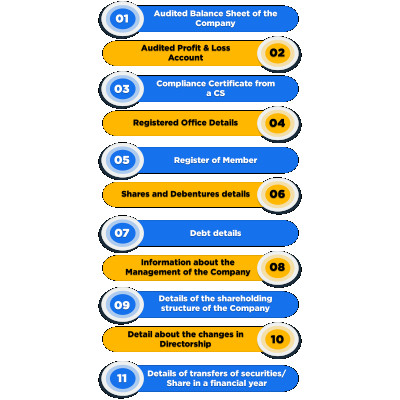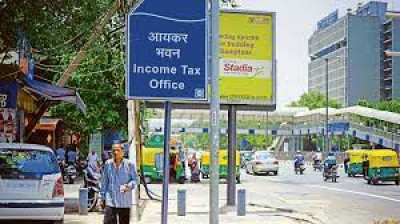Errors to prevent when filing returns for income tax
It is possible to amend the income tax return for the 2020-21 assessment year before 31 March 2021. Seven ITR forms for filing returns for FY 2019-20 have been registered by the income tax department. The ITR filing process continues with the option of the proper form, which depends on the nature of the income and the taxpayer's status.
Taxpayers are required to fill in the appropriate personal information such as name, cell phone number, date of birth, address, email ID. You should verify that the PAN (Permanent Account Number) fits with the information.
The popular error to stop during ITR filing is as follows:
1. Except interest on FD from taxable income
Though interest income of up to Rs 10,000 from savings accounts is excluded, interest income received from fixed deposits is subject to taxes. Taxpayers who are not aware of this provision, however, exclude fixed interest on deposits from their taxable income, something they can never do.
2. Non-disclosure International Assets and Income
It is mandatory for all ordinary citizen taxpayers to report in their income tax forms the right descriptions of their international assets and income outside India. Tax officers may impose a penalty of Rs 10 lakh under the Black Money (Undisclosed Foreign Income and Assets) Imposition of Tax Act, 2015 if the taxpayer fails to provide any information or provides incorrect information with regard to foreign income and assets in the return. Nonetheless, many taxpayers do not report accurate data of their international assets and income outside India.
3. Non-disclosure of carried forward losses
It is compulsory to file one's income tax return on or before the due date in order to carry over those expenses sustained during the set-off year against taxes in subsequent years. If, after the due date, the income tax return seeking to carry forward the losses of the current year is filed, those losses would not be accepted to carry forward.
4. Non-Verification of E-filed ITR
Many taxpayers are expected to automatically file their income tax returns. However, it is not enough to just furnish the return electronically and you are also expected to validate the return so that your identity is validated. You can either e-verify through Aadhaar OTP's, connect your login to Demat A / c, Net Banking, or send within 120 days a signed copy of the ITR certificate to CPC, Bangalore. Failure to review your return within the prescribed period will result in the tax department treating you as a non-filer,
5. Properties or signing power by citizen taxpayers outside India
If you are residing in India for tax purposes and own any asset outside India in your own name as a beneficial owner or have an interest in any asset outside India, or even if you are an approved signatory to any account outside India, you are also expected to file your income tax return.
6. Gross total income above the basic exemption threshold
If the sum of all the taxes until deduction reaches the specific exemption cap under different provisions of chapter VIA, such as 80 C, 80 CCC, 80 CCD, 80 D, 80E, 80 GGA, 80 TTA, you are expected to file the income tax return. These sections deal with deductions applicable for different contributions or payments made by you, such as PPF, NPS, ELSS, NSC, principal repayment on your home loan, school fee, life insurance premiums, premiums for medication, gifts, interest on college loans, the rent charged by self-employed citizens, etc.
7. Choosing the wrong form for a tax return
Seven varieties of income tax return (ITR) forms have been issued by the Income Tax Department, and the choice of an ITR form for filling up the tax return depends on the level of income and the taxpayer's status. The criteria for disclosure are different in all ways and it is, therefore, necessary to select the correct form when furnishing the income tax return. Your return will be viewed as inaccurate if it fails.
The following are the Other errors to prevent:
- The most frequent error committed by taxpayers is the neglect to report interest income received from bank fixed deposits (FDs), recurring deposits (RDs), infrastructure bonds, or other sources. The restriction given in Section 80TTA is only applicable to the interest on the balance of your savings bank. Interest from other sources is entirely taxable, such as 5-year tax savings bank FDs. Your return would also contain interest from tax-free securities, such as the PPF and tax-free bonds.
- If you do not e-verify your Income Tax Return or post it to the Centralized Processing Centre (CPC) of the Department of Income Tax in Bengaluru, the return will be regarded as an invalid return. You are asked to digitally sign or e-verify it during the ITR filing process. If you do not e-verify your return, you can sign the Income Tax Return copy of the acknowledgment and send it to CPC, Bangalore. The acknowledgment must be submitted within 120 days of the return being filed.
- Must not make the error of disregarding the laws of taxes. For instance, if you have several properties, then one is deemed to be self-occupied, while the majority of the properties are deemed to be renting out or rented and are taxed accordingly.
- Do not commit missed income errors from some source as the ITR is being filed. The salary, interest received from the savings bank account, fixed deposit, etc. should be included. If you forget any information, you can get a note requesting an explanation from the tax department.
- If you are resident in India, regardless of tax liability, you must file ITR if taxable income exceeds the basic exemption threshold limit, which is Rs 3,00,000 for senior citizens (over 60 years of age), Rs 5,00,000 for super-senior citizens (over 80 years of age) and Rs 2,50,000 for all other individual taxpayers.
- Another flaw that can be prevented is not updating sensitive information. When filing returns, a change in address and mobile number within a financial year should be listed.
- Mention the specifics of the bank account correctly along with the IFSC (Indian Financial System Code). This will lead to making the process of return easier. Taxpayers are also expected to disclose all the bank accounts in their hands.
- You have to disclose money received by all the employers on the tax return if you have moved occupations over the year. In addition, "if your minor child or spouse's income is expected to be clubbed with your income, then you must disclose it,"
- Any mismatch in Form 16 and Form 26AS information can also land you in difficulty. Check if the tax deductions are the same as defined in all forms and whether there are no wrong estimates.
- An error that can be stopped is often not being careful to note accurate deductions. If you listed each deduction under the correct heads, do verify.
- Any expenses can be reduced by avoiding the tax filing process. From this assessment year on, if you file your returns after the due date and by 31st Dec, you will have to pay a fine of Rs.5 thousand. A fine of Rs 10 thousand will be imposed if you file it after 31st Dec.
- Tax professionals caution against seeking Income Tax Return deductions for which you are not liable. "To minimize their income tax burden or to obtain refunds, certain taxpayers claim false deductions or inflate real deductions.






